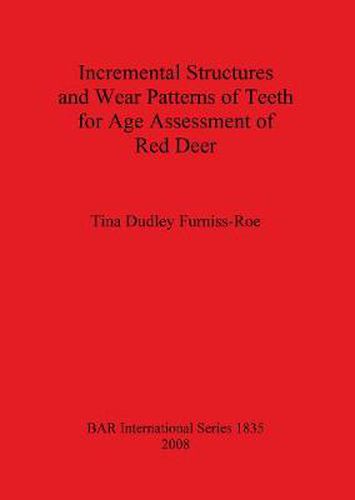Readings Newsletter
Become a Readings Member to make your shopping experience even easier.
Sign in or sign up for free!
You’re not far away from qualifying for FREE standard shipping within Australia
You’ve qualified for FREE standard shipping within Australia
The cart is loading…






This title is printed to order. This book may have been self-published. If so, we cannot guarantee the quality of the content. In the main most books will have gone through the editing process however some may not. We therefore suggest that you be aware of this before ordering this book. If in doubt check either the author or publisher’s details as we are unable to accept any returns unless they are faulty. Please contact us if you have any questions.
The ability to age animals accurately is of great importance both to archaeologists and to wildlife managers. Archaeologists are also particularly interested in the ability to determine the season of death of mammals, in order to reach a greater understanding of how man was exploiting or responding to his environment. A number of methods of age determination are available to wildlife managers, who have the advantage of having an entire animal in good condition at their disposal. Archaeologists, however, have more limited resources, and often wish to attempt age, and even seasonality, assessments using only bones and teeth. Teeth survive very well in the ground, and can often reveal information that would otherwise be lost, such as the species, which were available, and whether they were being hunted, scavenged, or farmed. The principal aim of this research was to examine the scientific basis and methodology of incremental analysis in order to arrive at increased understanding of the British Mesolithic. The approach includes an examination of every aspect of incremental analysis: the scientific basis, the methodology of thin section production, microscopical techniques, and interpretation, in order to obtain the greatest possible amount of information from a rather specialised technique. The species chosen was Red deer, a common animal on archaeological sites in British prehistory.
$9.00 standard shipping within Australia
FREE standard shipping within Australia for orders over $100.00
Express & International shipping calculated at checkout
This title is printed to order. This book may have been self-published. If so, we cannot guarantee the quality of the content. In the main most books will have gone through the editing process however some may not. We therefore suggest that you be aware of this before ordering this book. If in doubt check either the author or publisher’s details as we are unable to accept any returns unless they are faulty. Please contact us if you have any questions.
The ability to age animals accurately is of great importance both to archaeologists and to wildlife managers. Archaeologists are also particularly interested in the ability to determine the season of death of mammals, in order to reach a greater understanding of how man was exploiting or responding to his environment. A number of methods of age determination are available to wildlife managers, who have the advantage of having an entire animal in good condition at their disposal. Archaeologists, however, have more limited resources, and often wish to attempt age, and even seasonality, assessments using only bones and teeth. Teeth survive very well in the ground, and can often reveal information that would otherwise be lost, such as the species, which were available, and whether they were being hunted, scavenged, or farmed. The principal aim of this research was to examine the scientific basis and methodology of incremental analysis in order to arrive at increased understanding of the British Mesolithic. The approach includes an examination of every aspect of incremental analysis: the scientific basis, the methodology of thin section production, microscopical techniques, and interpretation, in order to obtain the greatest possible amount of information from a rather specialised technique. The species chosen was Red deer, a common animal on archaeological sites in British prehistory.